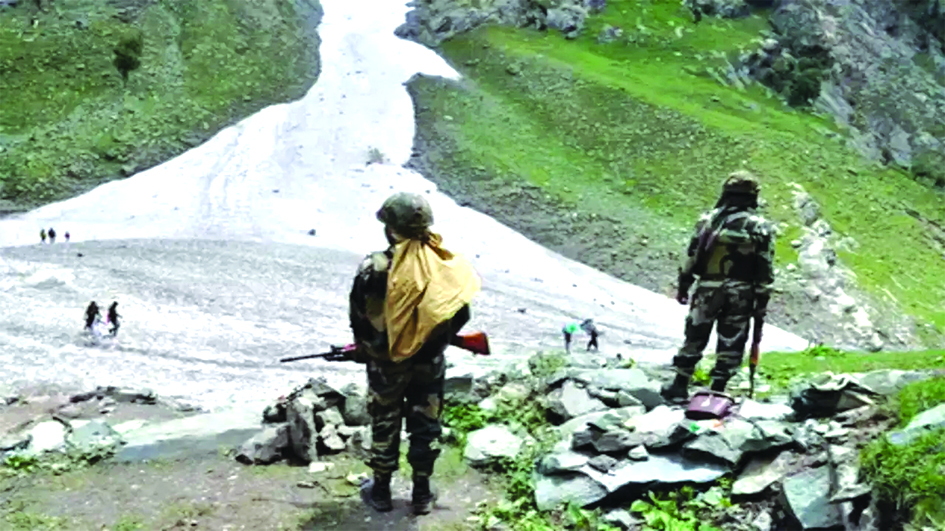 Early Times Report Early Times Report
Jammu, May 25: The horrific terror attack in Pahalgam on April 22, 2025, which claimed the lives of 26 civilians, including 25 tourists and a local pony operator, has sent shockwaves through Jammu and Kashmir, significantly impacting the region’s political and security landscape.
The attack, carried out in the picturesque Baisaran Valley by terrorists linked to The Resistance Front (TRF), an offshoot of the Pakistan-based Lashkar-e-Taiba (LeT), has led to a halt in the preparations for Urban Local Bodies (ULB) and Panchayat elections, with authorities now prioritizing security arrangements for the upcoming Amarnath Yatra, scheduled to commence on July 3, 2025.
The administration had initiated the process for conducting ULB and Panchayat elections, critical for strengthening grassroots democracy in the Union Territory following the abrogation of Article 370 in 2019. However, the brutal attack in Pahalgam, described as the deadliest civilian-targeted assault since the 2008 Mumbai attacks, has forced a re-evaluation of the security situation. Sources within the administration confirm that the election process, which includes updating electoral rolls and delimiting constituencies, has been indefinitely paused due to heightened security risks.
The grassroots polls were last held in Jammu and Kashmir in 2018. The terms of Panchayats and UBLs ended in November last year.
“The prevailing security scenario in Jammu and Kashmir necessitates a cautious approach. The Pahalgam attack has exposed vulnerabilities in civilian areas, and we ca The terror attack has led to a halt in the preparations for Urban Local Bodies (ULB) and Panchayat elections
Authorities are now prioritizing security arrangements for the upcoming Amarnath Yatra, scheduled to commence on July 3,
The election process, which includes updating electoral rolls and delimiting constituencies, has been indefinitely paused.
The attack, which targeted tourists in a region known for its scenic beauty and religious significance, has raised concerns about the safety of public gatherings, including election-related activities.
Political leaders across the spectrum have expressed concern over the delay. Chief Minister Omar Abdullah, addressing a special session of the J&K Assembly on April 28, emphasized the need for public cooperation to combat terrorism, cautioning against actions that could alienate locals.
“Terrorism will end only when people support us. We must avoid steps that push the public away,” he said, hinting at the delicate balance between security measures and democratic processes.
With the Amarnath Yatra set to begin on July 3 and conclude on August 9, the J&K administration and security forces are now focusing on ensuring a safe pilgrimage. The annual yatra, which draws over 500,000 pilgrims to the Amarnath Shrine, has historically been a target for terrorist attacks, with past incidents in 2000, 2002, and 2017 resulting in some casualties.
The Pahalgam attack, timed just before the yatra’s registration process began, is widely seen as an attempt to disrupt the pilgrimage and deter tourists.
In response, the government is planning a significant overhaul of security arrangements. Authorities are considering a permanent deployment of army and paramilitary forces in the mountains overlooking Baisaran Valley, which currently lacks a security presence due to its remote location. |
